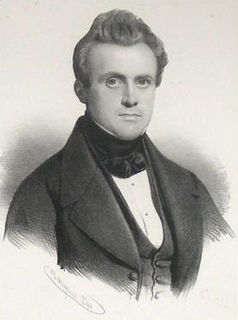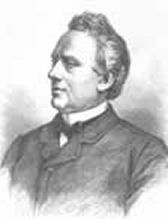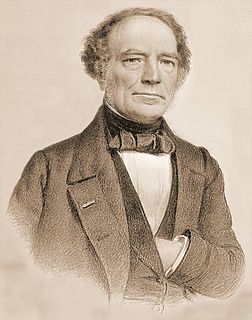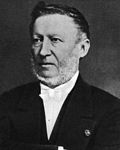
Full general elections were held in Belgium on 14 October 1894, with run-off elections held on 21 October 1894.

Partial legislative elections were held in Belgium on 22 May 1898, with run-off elections held on 29 May. Under the alternating system, elections for the Chamber of Representatives were held in only four out of the nine provinces: Hainaut, Limburg, Liège and East Flanders. Thus, only 75 seats out of the 152 seats in the Chamber of Representatives were up for election. The Catholic Party retained their absolute majority.

Partial general elections were held in Belgium on 25 May 1902. The result was a victory for the Catholic Party, which won 54 of the 85 seats up for election in the Chamber of Representatives. Voter turnout was 95.7%.

General elections were held in Belgium on Tuesday 14 June 1892, the first full general elections since 1870 and the last before the introduction of universal male suffrage prior to the 1894 elections. The result was a victory for the Catholic Party, which won 92 of the 152 seats in the Chamber of Representatives and 46 of the 76 seats in the Senate. Only 2.2% of the country's population were eligible to vote.

Partial general elections were held in Belgium on 8 June 1852. In the elections for the Chamber of Representatives the result was a victory for the Liberal Party, who won 57 of the 108 seats. Voter turnout was 69.2%, although only 42,053 people were eligible to vote.

Partial general elections were held in Belgium on 10 June 1856. In the elections for the Chamber of Representatives the result was a victory for the Catholics, who won 63 of the 108 seats. Voter turnout was 60.6%, although only 43,573 people were eligible to vote.

Partial general elections were held in Belgium on 11 June 1861. In the elections for the Chamber of Representatives the result was a victory for the Liberal Party, which won 66 of the 116 seats. Voter turnout was 58.4%, although only 47,555 people were eligible to vote.

Partial general elections were held in Belgium on 12 June 1866. In the elections for the Chamber of Representatives the result was a victory for the Liberal Party, which won 70 of the 122 seats. Voter turnout was 70%, although only 51,465 people were eligible to vote.

Partial general elections were held in Belgium on 11 June 1870. In the elections for the Chamber of Representatives the Liberal Party and the Catholic Party both won 61 seats. Voter turnout was 60%, although only 51,435 people were eligible to vote. Early elections were held later in the year.

Partial general elections were held in Belgium on 13 June 1876. In the elections for the Chamber of Representatives the result was a victory for the Catholic Party, which won 67 of the 124 seats. Voter turnout was 67.5%, although only 63,278 people were eligible to vote.

Partial general elections were held in Belgium on 8 June 1880. In the elections for the Chamber of Representatives the result was a victory for the Liberal Party, which won 74 of the 132 seats. Voter turnout was 67.2%, although only 62,936 people were eligible to vote.

Partial general elections were held in Belgium on 8 June 1886. In the elections for the Chamber of Representatives the result was a victory for the Catholic Party, which won 98 of the 138 seats.

Partial general elections were held in Belgium on 10 June 1890. In the elections for the Chamber of Representatives the result was a victory for the Catholic Party, which won 94 of the 138 seats.

Partial general elections were held in Belgium on 14 June 1859. The result was a victory for the Liberal Party, which won 69 of the 116 seats in the Chamber of Representatives and 31 of the 58 seats in the Senate. Voter turnout was 55.9%, although only 49,672 people were eligible to vote.

Partial general elections were held in Belgium on 9 June 1863. The result was a victory for the Liberal Party, which won 59 of the 116 seats in the Chamber of Representatives and 33 of the 58 seats in the Senate. Voter turnout was 74.5%, although only 52,519 people were eligible to vote.

Partial general elections were held in Belgium on 9 June 1874. The result was a victory for the Catholic Party, which won 68 of the 124 seats in the Chamber of Representatives and 34 of the 62 seats in the Senate. Voter turnout was 64.1%, although only 52,074 people were eligible to vote.

Partial general elections were held in Belgium on 11 June, 18 June and 15 July 1878. The result was a victory for the Liberal Party, which won 72 of the 132 seats in the Chamber of Representatives and 36 of the 66 seats in the Senate. Voter turnout was 62.5%, although only 56,640 people were eligible to vote.

Legislative elections were held in Belgium in June and July 1884, for partial Chamber and full Senate elections respectively. Voter turnout was 79.1% in the Chamber of Representatives elections, although only 69,276 people were eligible to vote.

Federal elections were held in Belgium on 25 May 2014. All 150 members of the Chamber of Representatives were elected, whereas the Senate was no longer directly elected following the 2011–2012 state reform. These were the first elections held under King Philippe's reign.

The 1882 United States elections occurred in the middle of Republican President Chester A. Arthur's term, during the Third Party System. Arthur had become president on September 19, 1881, upon the death of his predecessor, James Garfield. Members of the 48th United States Congress were chosen in this election. Democrats won control of the House, while Republicans won control of the Senate.














